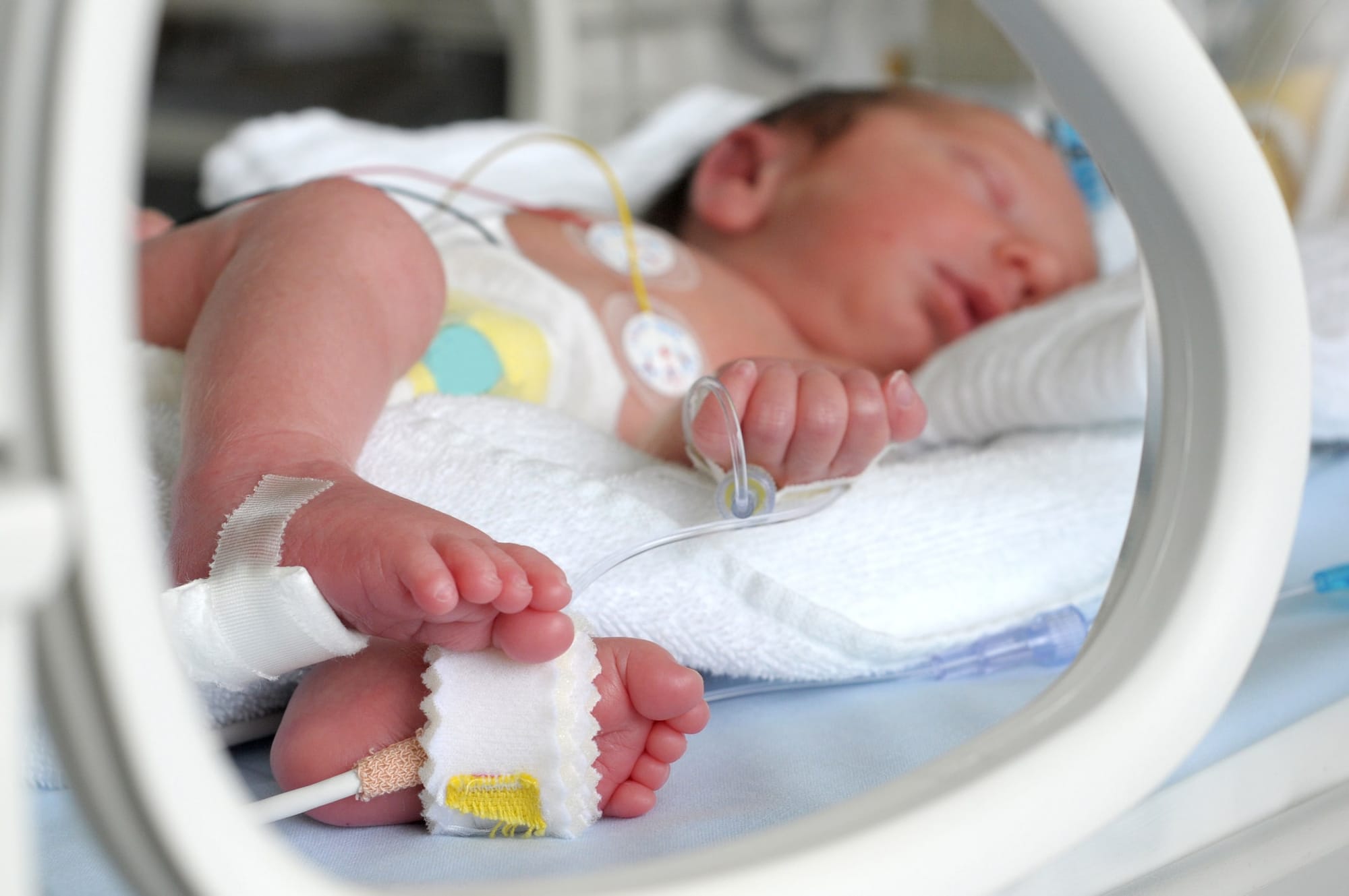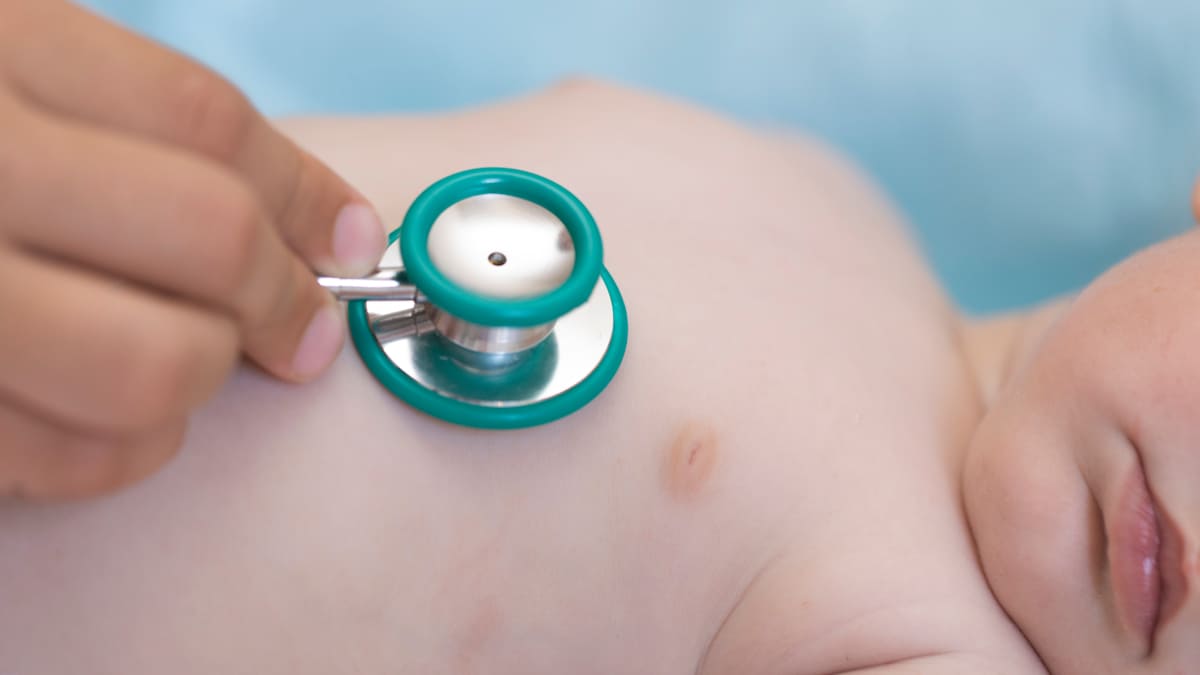
When we think of inflammation, most of us picture a sore throat or a swollen ankle. But researchers are showing that inflammation is also a powerful and often hidden driver of childhood disease, from the first breath of a premature newborn to lifelong conditions such as inflammatory bowel disease (IBD) and juvenile arthritis.
A growing team of clinician-scientists and immunologists is transforming how we understand, detect and treat inflammatory conditions in children.
The work, led by Professor Marcel Nold and Associate Professor Ed Giles, both clinician-scientists based across Monash Children's Hospital, Hudson Institute of Medical Research and the Department of Paediatrics at Monash University, is not just rewriting the science, but reshaping futures.
“Inflammation is meant to heal damage. But when that response goes wrong, especially early in life, it can drive lifelong disease,” says Associate Professor Giles.
From tiny lungs to big questions
While Monash’s Department of Paediatric has long been considered a leader in neonatology, inflammation has only recently emerged as a unifying theme for its researchers. Professor Nold says the field is still young.
“Sixty years ago, neonatology itself was in its infancy. Back then, babies born before 34 weeks were just beginning to receive ventilation and oxygen therapy. These innovations saved lives, but they also introduced complications that we now know are driven by inflammation.”
Conditions such as bronchopulmonary dysplasia of the heart and lung, necrotising enterocolitis of the gut, retinopathy of prematurity of the eyes, and white-matter brain injury – once thought to be inevitable outcomes of prematurity – are now understood as inflammatory diseases in their own right.
Treating them effectively requires tackling inflammation at its source.
From bedside to bench (and back)
Professor Nold and his team, including co-lead Professor Claudia Nold-Petry, an immunologist at Hudson Institute of Medical Research, have spent more than a decade working to suppress the specific inflammatory signals that underlie these conditions.
“Having understood the clinical conundrum, we started with basic science,” he says. “We identified a cytokine, a molecular ‘messenger’ of inflammation, that plays a key role across multiple diseases. Then, working with a large multidisciplinary team and with collaborators across Australia and internationally, we identified a targeted therapy and began testing it pre-clinically.”
In 2022, the inaugural dose of this therapy was given to a premature baby in a world-first clinical trial, the Anakinra Pilot, at Monash Children’s Hospital, and the trial was recently completed. The results are promising, and the team is preparing them for publication.
“It’s one of those rare full-circle moments,” Professor Nold says. “From identifying a gap in the care we can deliver to our patients, developing an idea to fill this gap, taking the idea to the bench, and the solution back to the bedside. And now, we’re moving into the next phase.”
If successful, the therapy could reshape care for multiple conditions, offering not just survival, but healthier lives for some of the most vulnerable patients.

Microbes, memory and modern medicine
Associate Professor Giles, a paediatric gastroenterologist, has watched diagnoses of irritable bowel disorders (IBD) in children rise dramatically during his career.
“There has been an explosion in cases, especially Crohn’s disease and ulcerative colitis,” he says. “We’ve come a long way in understanding the immune mechanisms, but now we’re also turning our attention to the microbes involved.”
He and Professor Nold collaborate with Associate Professor Sam Forster, a leading microbiome researcher at the Hudson Institute, to uncover how bacteria influence immune development in infancy and beyond.
Their teams are developing new bacterial therapeutics – targeted live biotherapeutics that can modify the gut microbiome to restore immune balance.
“It’s like upgrading from a sledgehammer to a scalpel,” Associate Professor Giles explains. “Instead of suppressing the whole immune system, we may be able to correct the trigger, offering treatments that are safer, more effective, and longer-lasting.”
Through a partnership with South Australian biotech firm BiomeBank, the group is preparing for clinical trials.
A research ecosystem built for complexity
Both Professor Nold and Associate Professor Giles credit Monash’s research ecosystem for the scale of this work. The Department of Paediatrics, Monash Children’s Hospital and Hudson Institute comprise a one-of-a-kind hub, they say, where discovery scientists, clinicians and translational researchers share laboratory space and goals, as well as patients and their families.
“The strength of the precinct is that we can follow inflammation across the entire lifespan, from pregnancy to adulthood,” says Associate Professor Giles.
In conditions such as IBD, that means studying mothers, babies, teenagers and transitioning adults across the same health system, supported by world-class research infrastructure.
"This is a place where questions don’t stop at departmental boundaries," Professor Nold adds. “We’re working across immunology, microbiology, neonatology, gastroenterology and often also other specialties, and always with the patient in mind.”
Precision paediatrics and collaborative care
As the Department of Paediatrics marks its 60th anniversary, inflammation research offers a window into what the next 60 years might look like. With precision medicine, targeted cytokine therapies, microbiome modulation and cross-disciplinary collaboration, researchers here are describing disease, but also actively changing its trajectory.
“Inflammation has become more than a buzzword,” says Associate Professor Giles. “It’s a way of thinking, about disease, about treatment, and about partnership. And for children and their families who once had few options, that shift could mean everything.”
This article is part of the “60 Years of Impact” series celebrating the Department of Paediatrics at Monash University.





